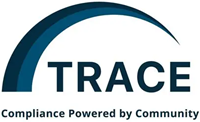
In shipping, we are deeply familiar with physical assets.
We track the condition of vessels with precision.
We scrutinize OPEX down to each dry-dock interval.
We benchmark hull efficiency, fuel blends, emissions, and port costs.
But there is one asset that is often neglected —
The voyage itself.
Not as a journey.
Not as a series of milestones.
But as a product — designed, priced, executed, and analyzed with intent.
And herein lies a fundamental shift:
The companies that recognize this are building competitive advantage.
The ones that don’t are leaking value in plain sight.
A voyage is not just a movement from A to B.
It is a bundle of commercial decisions:
Each decision compounds over time — sometimes in your favour, often against it.
But when these decisions are made in silos, in spreadsheets, and across disconnected teams, you are not managing a product. You are reacting to events.
And products built in reaction rarely scale.
When we think of a product, we think of lifecycle:
Treating voyages this way creates discipline.
It creates predictability.
And most importantly, it creates the foundation for continuous improvement.
To manage voyages as products, you need more than dashboards.
You need a system that provides:
But even more critically, you need culture:
One that does not see voyages as routine tasks, but as instruments of value creation.
This means empowering your operators to lead, not just execute.
It means aligning your commercial, operational, and finance teams around a shared version of truth.
And it means rewarding clarity, not firefighting.
At Mizzen Digital, we are building the tools to enable this transformation.
Our platform is designed for companies who want to:
We believe that commercial shipping should operate with the same precision as the world’s best supply chains.
Because this is no longer just about moving cargo.
It’s about designing competitive advantage into every voyage.
A vessel may be chartered.
A port may be delayed.
Fuel prices may swing.
But the voyage as a unit of opportunity is yours to shape.
And in an industry where small margins matter,
the companies that manage voyages as products
will be the ones that outperform in cycles,
and endure across generations.
Ready to simplify operations, boost efficiency and future-proof your maritime business? Let’s chart the course together.






